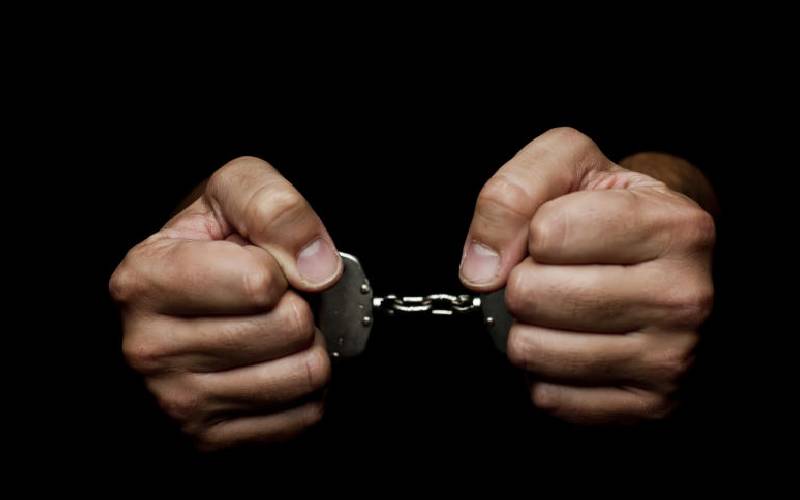
In May 2015, the National Council on Administration of Justice (NCAJ), a agency made up of actors such as the police, Office of the Director of Public Prosecution, Judiciary, Prisons and NGOs working on criminal justice, commissioned a study.
They aimed to better understand the justice system in terms of who is being prosecuted, for what, case flow management, treatment of women and children, the conditions of detention and other important factors. They sought to offer a comprehensive analysis of the criminal justice system towards providing recommendations to strengthen service delivery and policy reforms in Kenya
When the audit was completed in 2017, it made several key findings: Firstly, it confirmed that the criminal justice system is skewed against the poor in terms of arrest, prosecution and imprisonment, which is an affront to the Constitution that emphasises equality before the law and non-discrimination.
Interestingly, the report found that 70 per cent of the offences in the entire system were those that would be classified as petty. These are essentially economically driven and public nuisance offences that have the government as the complainant, as opposed to living persons. They include touting, lack of business licences and permits, being drunk and disorderly, loitering, profiting from prostitution, et cetera.
The report found these cases took up precious arrest, investigations, prosecutions, adjudication, imprisonment and probation and aftercare services time, financial and human resource from the police, prosecutors, judges and magistrates, prison and probation officers.
Such time would have instead been spent on serious offences with real victims such as robbery, sexual and gender-based violence, terrorism, murder, cattle rustling and other security threats. To remedy the targeting of the poor and the waste of the valuable judicial time that crowds out ‘real’ crimes that exacerbate violations of due process rights because of traditional negative attitudes towards the poor as well as a general lack of legal representation, the government should declassify and decriminalise petty offences.
Critics of these laws posit that they have been historically used as tools to remove or banish the poor and ‘undesired’ from public spaces. Ironically, whilst western countries are generally doing away with them, their former colonies such as Kenya continue to keep them even though the same laws were enacted and brutally deployed during colonial times to keep the ‘natives’ separate, and out of public spaces.
Besides, prevailing research shows that laws criminalising vagrancy, loitering, prostitution, and like offences are often applied indiscriminately to the indigent, homeless, street children, women, children, persons living with disability, other vulnerable persons, and persons discriminated against on grounds of race, nationality, and other categories.
Kenya, therefore, needs to relook how it defines conduct that is criminalised by seeking a balance between societal repugnance of crimes and the protection of individual liberties. Ideally, such offences should not result in remand imprisonment but would be dealt with administratively with summons and fines.
Legal Aid Act
The report says that legal representation is an important cog in access to justice in line with the Constitution, which provides that every accused person has the right to a fair trial. This includes the right to choose and be represented by an advocate; to be informed of this right promptly and to have an advocate assigned to the accused person by the State and at the State’s expense, if substantial injustice would otherwise result and to be informed of this right promptly.
Unbeknownst to many, the National Assembly passed into law the Legal Aid Act in 2016, which established the National Legal Aid Service mandated to roll out a national legal aid scheme that is affordable and accessible; to promote research in the field of access to justice; and “take appropriate measures to promote legal literacy and legal awareness among the public and in particular, educate vulnerable sections of the society on their rights and duties under the Constitution and other laws.”
Despite the beautiful implications of this law to the poor and vulnerable, and it’s potential in reducing abuse of due process, it is yet to be operationalised by the Executive alongside other criminal justice ‘ecosystem’ laws such as the National Coroners Service Act and the Prevention of Torture Act which were incidentally passed in 2017. The National Assembly, national and county governments and other players should study the NCAJ report with a view to put in place policy changes that will ensure justice for all, equality before the law and fairness in the criminal justice system.
The problem of petty offences, lack of legal representation for all and failure to fully enforce other laws should be dealt with once and for all.
-The writer is a constitutional and human rights lawyer.
Uncover the stories others won’t tell. Subscribe now for exclusive access
- Unlimited access to all premium content
- Uninterrupted ad-free browsing experience
- Mobile-optimized reading experience
- Weekly Newsletters
- MPesa, Airtel Money and Cards accepted
